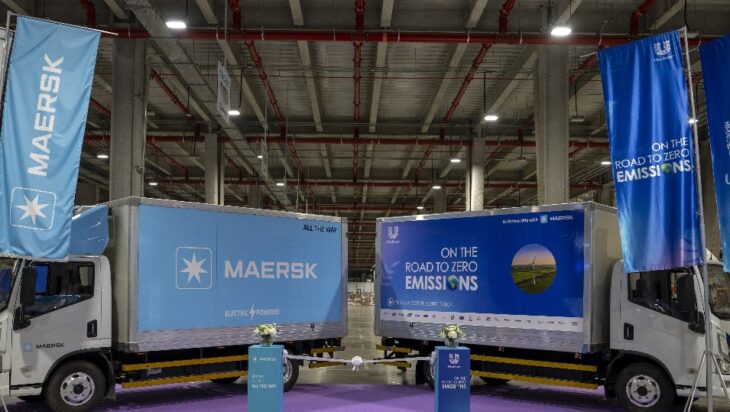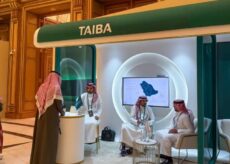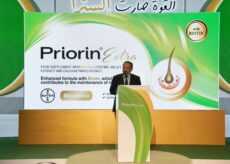Maersk and Unilever launch first electric van towards decarbonising logistics in Saudi Arabia

On the road to zero emissions, global logistics leader A.P. Moller – Maersk (Maersk) and consumer goods giant Unilever are joining forces to launch their first electric van in Saudi Arabia. This pioneering initiative is an important milestone in decarbonising logistics operations in the Kingdom, supporting Saudi Vision 2030 objectives to reduce carbon emissions by 278 million tonnes annually and increase renewable energy usage to 50%.
This launch is the beginning of a broader transformation. Both companies aim to scale electric mobility across Saudi operations and explore additional innovations, including solar-powered warehousing and intermodal transport solutions.
Driving Decarbonisation in Jeddah
The electric van will serve the BinDawood Group, one of Unilever’s key retail partners, operating within a 50 km radius and covering up to 3,500 km per month. This deployment follows Unilever and Maersk’s successful consolidation of warehouses into a single fulfilment centre at Maersk’s Logistics Park in Jeddah, already delivering a 5% emissions reduction. This reduction is enabled by the Park’s strong sustainability infrastructure, including a 64,000 sqm rooftop solar plant and an advanced cooling system using natural refrigerant (Ammonia) and seawater instead of potable water.
“This is the first van deployment in our Saudi fleet, and it represents our commitment to reducing logistics-related emissions wherever feasible,” says Ahmed, Kadous, Head of Customer Operations, Unilever Middle East, Turkey, Pakistan and Bangladesh. “This is another building block of our emission reduction plans in partnership with Maersk. We’re proud to introduce this innovation in Saudi Arabia, supporting Saudi Vision 2030 and joining global efforts. By improving efficiency and cutting emissions, we strengthen sustainability while delivering greater value to our customers.”
Partnership for Sustainable Value
The initiative showcases the strength of the Maersk-Unilever partnership, with both companies working collaboratively on infrastructure readiness, operational planning, and stakeholder engagement to ensure successful implementation.
“As electric vehicle technology advances and charging infrastructure expands across Saudi Arabia, we’re seeing more opportunities to deploy emission-free trucks in place of diesel units,” says Ahmed El Esseily, Managing Director at Maersk Saudi Arabia. “We’re proud to partner with forward-thinking customers like Unilever, who are committed to decarbonising logistics solutions that deliver value throughout their supply chain.”
Maersk currently offers low-emission trucking solutions in more than 14 countries globally, including China, India, the USA, Brazil, Chile, Peru, and several European countries. The company is committed to reaching net-zero emissions by 2040 across the entire supply chain through new technologies, alternative energy solutions, and close partnerships with customers and vendors. As part of Unilever’s commitment to achieving net zero across the value chain by 2039, the company is implementing measures designed to reduce greenhouse gas emissions from their logistics network by up to 50% by 2030. A key pillar of this strategy is the transition to electric vehicles, reinforcing Maersk and Unilever’s dedication to building a more sustainable future.


